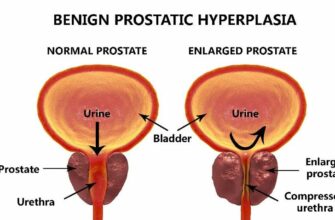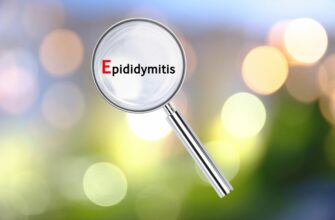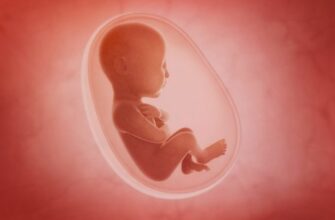Many people think of nutrient deficiencies as a problem in nations that struggle to grow enough food for their populations. In the U.S., they’re often viewed as a thing of the past because most of the country has a thriving agricultural industry, and store shelves are filled with fortified foods.However, almost a third of American adults aren’t getting enough of at least one vitamin or mineral. Common nutrient deficiencies in men are often related to diet and daily habits.
Vitamin D
Vitamin D deficiency is very common among men and the entire population. Although sunlight can increase vitamin D levels, many Americans spend most of their time indoors. When we do go out, most of our skin is covered with clothing or sunscreen.Deficiency in vitamin D is associated with hormonal imbalances, high blood pressure, high cholesterol, and a weakened immune system. Low bone density and osteoporosis are also a concern because we need vitamin D to process calcium efficiently.
Iron
Iron is an essential mineral used in hemoglobin, a component in red blood cells. Insufficient iron can cause fatigue, and iron deficiency anemia is the most common type of anemia across the world.Symptoms of iron deficiency include headaches, weakness, dizziness, cold hands and feet, and unusual food cravings. Although women are more commonly affected by iron deficiency, it’s also a problem for boys under the age of 5 and men over 65.
Vitamin B12
Lack of vitamin B12 can lead to pernicious anemia. Vitamin B12 is needed for healthy functioning of red blood cells, nerves, and DNA. A deficiency can occur both if too little B12 is consumed or if something is preventing the B12 from being absorbed by the body.Vegetarian diets tend to be low in B12 because meat is the most abundant source. Conditions such as Celiac or Crohn’s disease interfere with B12 absorption, and some heartburn medications also prevent absorption. Symptoms of B12 deficiency include numbness, pins and needles feeling in the hands and feet, shortness of breath, and joint pain. Severe cases may lead to memory loss or dementia symptoms.
Potassium
Hypokalemia, or low potassium, may cause muscle cramps or twitching, fatigue, stiffness, difficulty breathing, abnormal heart rhythms, localized or temporary paralysis, and kidney problems.The most common causes of low potassium are dehydration, chronic alcohol use, vomiting and diarrhea, certain types of antibiotics, diabetes, and diuretic medications meant to relieve water retention.
Calcium
Calcium deficiency occurs when blood levels of calcium are too low. Long-term, this deficiency can cause dental problems such as broken or decaying teeth, osteoporosis, cataracts, generalized muscle aches, and leg pain while walking. Severe calcium deficiency may cause life-threatening symptoms such as heart arrhythmias and muscle convulsions.The most common cause of low calcium is simply not consuming enough foods with high calcium content, such as milk, cheese, kale, almonds, and sesame seeds.
Magnesium
Low magnesium is associated with an increased risk of heart disease, diabetes, and osteoporosis. Other symptoms include poor appetite, nausea and vomiting, weakness, tremors, muscle spasms, irritability, sleepiness, pins and needles in the extremities, and abnormal heart rhythms.Magnesium deficiency is usually related to poor diet, but other risk factors include digestive problems, kidney disease, long-term vomiting and diarrhea, excessive alcohol consumption, and diuretic medications.
Zinc
Zinc is a very important mineral, especially for men. Unfortunately, excessive alcohol consumption and chronic digestive disorders, such as Crohn’s disease, diabetes, and kidney and liver disease, can interfere with zinc absorption.Zinc deficiency may contribute to erectile dysfunction and infertility because zinc is necessary for testosterone and sperm production.
Vitamin A
Vitamin A deficiencies are linked to an increased risk of several types of cancer, as well as macular degeneration, which can lead to blindness.Most adults in the United States consume enough foods to maintain sufficient levels of vitamin A, but smoking or chewing tobacco hinders vitamin A absorption. Taking too much of a vitamin A supplement can also increase the risk of lung cancer among smokers.
Iodine
Iodine doesn’t always get much attention, but it is an essential nutrient. The thyroid gland can’t produce hormones without sufficient amounts of iodine. We don’t see iodine deficiency very often in the United States because our table salt is fortified. However, men may be at risk of iodine deficiency if they adhere to low-salt diets.Potential consequences of iodine deficiency include a condition called goiter that causes swelling around the thyroid gland and insufficient thyroid hormones. This ailment affect the muscles, liver, kidneys, heart, and brain. Men may also experience decreased sperm production.
Folic Acid
Folic acid, or folate, is a water-soluble B vitamin. It occurs naturally in many foods and is added to staples in the U.S., such as breakfast cereal. Though this nutrient is most often talked about in regard to women’s reproductive health, folate-deficiency anemia may occur among men, too, if they don’t eat enough leafy green vegetables, yeast, fortified cereals, or organ meats.Digestive illnesses like celiac disease, as well as alcohol consumption and anti-seizure medications, can also interfere with folic acid absorption. Symptoms of folic acid deficiency include poor appetite, lack of energy, diarrhea, pale skin, irritable mood, and an enlarged or sore tongue that may interfere with eating.

 Home
Home Health
Health Diet & Nutrition
Diet & Nutrition Living Well
Living Well More
More




















